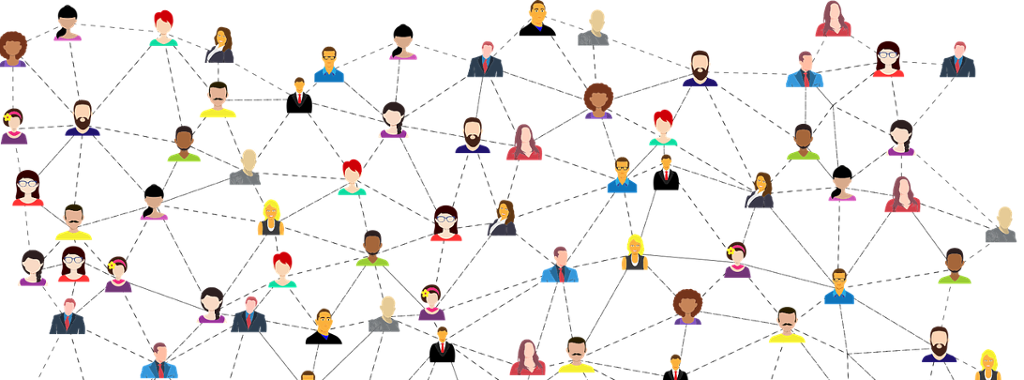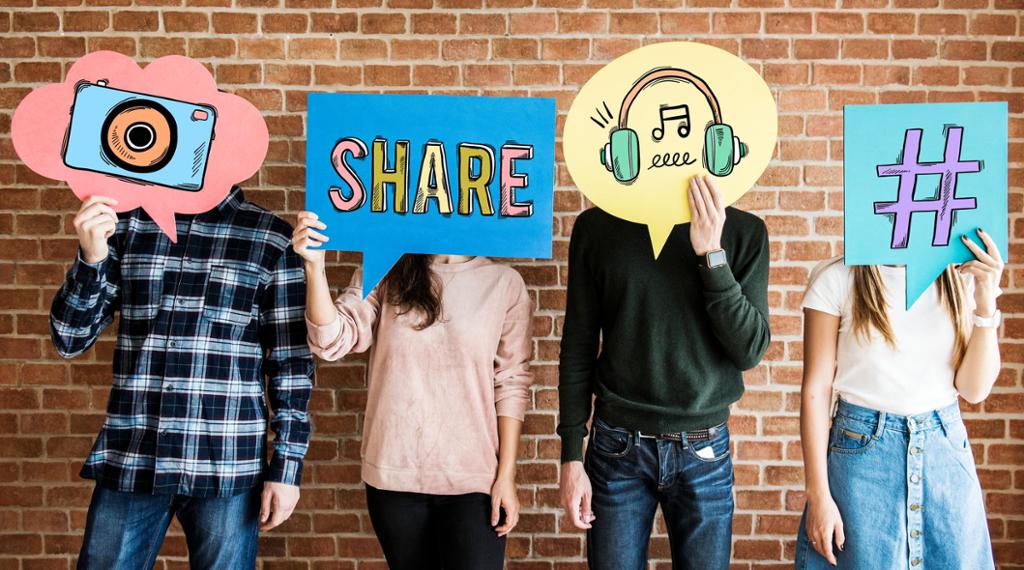Social Media

Before you read the text, discuss with a partner:
- How much time do you spend on social media every day?
- What do you use social media for?
- Mention a few positive and negative aspects of social media. Do the positives outweigh the negatives?
It’s easy today to lose sight of the fact that these tools actually have created some wonderful things in the world. They’ve reunited lost family members. They’ve found organ donors. I mean, there were meaningful, systemic changes happening around the world because of these platforms that were positive! I think we were naive about the flip side of that coin. Tim Kendall, former Director of Monetisation at Facebook (Orlowski).
Today, social media is ubiquitous. From grandparents to children, it seems everyone is linked in. Social media has become an integral part of our daily existence, especially for the generation referred to as Generation Z, which are people born after the mid-1990s. Pew Research Centre reported in 2018 that 88% of 18-to-29-year-olds in the United States use some form of social media (Anderson & Smith).
In today's society, members of Generation Z feel the need to constantly be online and accessible. Statistics published on Digital Information World show that 16-to-24-year-olds spend an average of 3.01 hours per day connected to social networks (Salim).
Members of Generation Z tend to exhibit less unruly behaviour and are generally better behaved than previous generations, but there is also a significant increase in mental health problems. According to an annual survey published by the American Psychological Association, “Generation Z is the segment of the population least likely to say their mental health is excellent or good” (APA). Additionally, studies conducted in the United States show that after 2009, when social media became available on smartphones, there was a tripling of self- inflicted injuries and suicides among girls aged 10-19 (Mercado et al., Ingber & Chatterjee).
Research has shown that getting likes and attention on social media triggers the rewards centre of our brains, and some researchers have warned that we can become addicted to social media. Researchers have also found that not being included in online groups, group chats, or events has a deep negative impact on us (King's University). While social media can make us feel very good, it also has the power to make us feel left out and alone.
On average, people with smart phones check them every 12 minutes for updates. This always-on behaviour has been shown to have a negative impact on people's ability to concentrate. The constant interruptions lead to elevated stress levels, something that, over time, leads to a deterioration of mental and physical health (Griffey.)
Wherever people gather, there will also be people with criminal intent. Social media is no exception. Social media can be abused by people with bad intentions in many ways. One important reason for this is the anonymity that is possible on social media: you cannot be sure if the person you are chatting with is who they say they are. In recent years, there have been many cases of fraud and sexual abuse linked to social media.
Social media has made it significantly easier to make friends across cultural and geographical boundaries. Additionally, the technology itself allows people to access information at an unprecedent speed, something that also helps make the world more interconnected. Social media also helps us build and maintain professional relationships. Never before have we had so many different ways to stay in touch, to have our opinions heard, to share our work and our ideas.
Like every other thing, even social media has certain positive as well as negative impacts on society. However, a number of sources say that the positive impacts of social media outweigh the negative impacts. (technology.org)

As users, we tend to think of social media as a way of staying in touch. What we often don't realize is that we are consuming enormous amounts of advertising. The companies behind the social media platforms generate income from these 'free' sites by allowing advertisers access to the users.
According to Jaron Lanier, who coined the term virtual reality, “everyone who is on social media is getting individualised, continuously adjusted stimuli, without a break, so long as they use their smartphones. What might once have been called advertising must now be understood as continuous behaviour modification on a titanic scale” (Lanier).
The constant bombardment of advertisement on social media platforms influences and changes the behaviour of social media users. The information we provide online is collected, analysed and turned into targeted advertising. These advertisements are successful due to the simple fact that the advertisers know a lot about us.
What we reveal about ourselves on social media also makes us a target for fake news. People who wish to influence our opinions or world-view can show us news stories that will influence our behaviour. Often, these news stories have little basis in reality. According to Scott Pelly, the author of the book Truth Worth Telling, “We have gone from the information age to the disinformation age” (CNN).
Social media platforms like Facebook have been criticised for not doing enough to stop fake news. However, it seems clear that getting rid of fake news is not in the economic interest of the social media platforms. As Tristian Harris, the founder of Centre for Humane Technology, puts it: “It’s a disinformation-for-profit business model. You make money the more you allow unregulated messages to reach anyone for the best price” (Orlowski, 2020). This has led to a situation in which conspiracy theories might run rampant, and there is very little actual fact-checking taking place.
The consequences of allowing fake news have been well documented by investigative journalists. Fake news stories were used to ensure that some voters refrained from voting in the 2016 presidential election (Channel 4, 2020.) Fake news was also used to give voters a false view of immigration to the UK before the 2016 Brexit referendum (Cadwalladr, 2019). While some may say that 'all is fair in love and war', can democracy survive if the results come down to who can afford the most effective disinformation campaign?
The social media platform Twitter has become an important venue for political expression. Where politicians previously voiced their opinions through press conferences or on the debate floor, nowadays small (often controversial) statements have become the norm. In the 2016 US presidential election, Donald Trump's Twitter presence contributed significantly to securing his victory. This medium does not allow for in-depth analysis; instead, we get short, instant snippets of information on a platform that allows everyone to speak their opinions with very little vetting. Twitter has become the modern equivalent of the old soap-box forum.
As a result of the increased media focus on Twitter and how it was used by different political players, Jack Dorsey, the CEO of Twitter, decided that the platform would no longer allow political advertising. In a tweet published on 30 October, 2019, he said the following: “We’ve made the decision to stop all political advertising on Twitter globally. We believe political message reach should be earned, not bought” (Dorsey). By that decision, a step was taken to allow the public to reclaim the democratic process. However, we must ask ourselves if allowing the commercial entities to regulate themselves is the best solution, or if legislation is needed.
Some would claim that social media is just a tool, and as such neither good nor bad in itself: it all depends on how we use it. However, unlike a hammer or an axe, social media has hidden layers that the user knows very little about. Social media is constantly collecting information about us, and we have no control over how it is used or by whom. Moreover, as users we are not fully informed about the psychological impact that using social media can have on us. We may notice that we become less focused or more depressed but may not link this with using fun and interesting social media apps. Investigative journalists have put social media under more scrutiny, but it still remains up to us as individuals to decide if we think the positives outweigh the negatives.